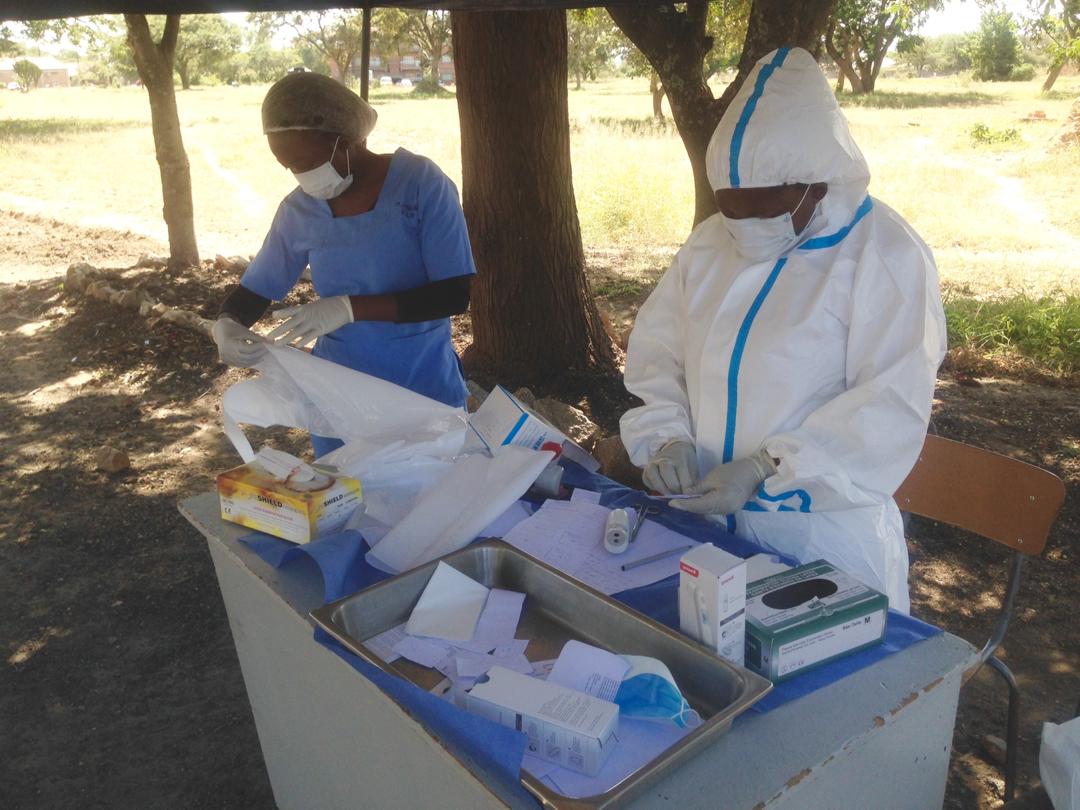Health authorities in Bulawayo have emphasised on the need for all health facilities to have rapid response teams to respond to Coronavirus cases.
Rapid response teams consist of health specialists and clinicians who provide appropriate care, testing, make sure contact tracing and disinfection is carried out immediately when a suspected or confirmed case is identified.
Before training of health staff, authorities in Bulawayo admitted to receiving reports that health workers would run way from suspected COVID-19 patients out of fear of contracting the deadly virus.
Hospitals are now moving to have their own rapid response teams while Bulawayo City Council has seven rapid response teams to carry out surveillance.
In an interview with CITE, Acting Bulawayo Provincial Medical Director, Dr Welcome Mlilo confirmed that all treatment facilities were supposed to establish their own rapid response teams.
“That is our expectation, whether Mater Dei, United Bulawayo Hospital (UBH) or Corporate 24. If a health facility or treatment centre has no rapid response team there is something amiss,” he said.
“People must call the national call number and be directed to the right person who will deal with the specific issue. Don’t call someone you know who works at city council but call the designated numbers for assistance.”
Bulawayo’s Director of Health Services, Dr Edwin Sibanda, acknowledged that health workers used to be afraid of dealing with suspected cases but with training, such fears stopped.
“Yes, that used to happen before we trained the rapid response teams at Mpilo and UBH. We learnt if staff saw one coughing, or had difficulty breathing, they will tell them to sit elsewhere, forget about them as they called the rapid response team, which was before asking questions concerning their sickness.
“Now we have trained the rapid response teams and are able to deal with suspected cases, they wear their Personal Protective Equipment (PPE), take samples and ask the right question so patients are treated accordingly,” Dr Sibanda.
He said since COVID-19 was an infectious disease, the city’s teams were designed to react to such.
“The ideal setup of rapid response teams have a clinician, can either be a nurse or a doctor, a laboratory technician who collects specimens or samples, a health education or health promotion officer and an environment health officer who looks at hygiene. The environmental health officer is one who must make sure the place is disinfected.
“If local teams had to include all the above, the rapid response teams would become big so we have two or three people capable individuals,” he said.
Dr Sibanda noted Mpilo Central Hospital and UBH had teams to respond to patients suspected of having COVID-19.
Mpilo Acting Chief Executive Officer and Clinical Director, Dr Solwayo Ngwenya, said the referral hospital was now able to attend to people suspected of having COVID-19.
Dr Ngwenya noted, “the city council would be overwhelmed if it were asked to come to Mpilo all the time. That’s why we have our own team here. COVID-19 is a serious disease so we don’t want people to travel. Stay home and phone the rapid response team from city health.
“They will come and attend to you because if you travel you will infect people on the way even at a hospital where there are people who are not infected. The rapid response team from the city health will quarantine you at home, take tests and make repeated visits there to contain the virus to one place.”

